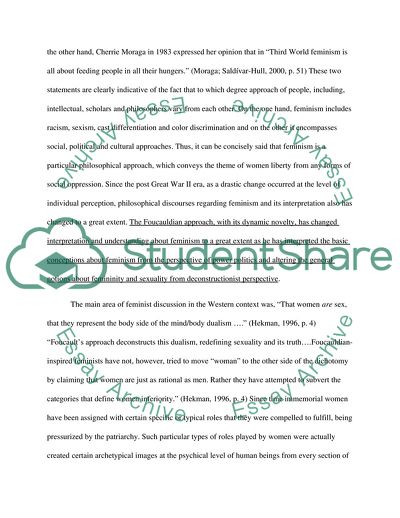Cite this document
(How Has Feminism Used Foucault to Explore Notions of Femininity Case Study, n.d.)
How Has Feminism Used Foucault to Explore Notions of Femininity Case Study. Retrieved from https://studentshare.org/gender-sexual-studies/1726414-how-has-feminism-used-foucault-to-explore-notions-of-femininity
How Has Feminism Used Foucault to Explore Notions of Femininity Case Study. Retrieved from https://studentshare.org/gender-sexual-studies/1726414-how-has-feminism-used-foucault-to-explore-notions-of-femininity
(How Has Feminism Used Foucault to Explore Notions of Femininity Case Study)
How Has Feminism Used Foucault to Explore Notions of Femininity Case Study. https://studentshare.org/gender-sexual-studies/1726414-how-has-feminism-used-foucault-to-explore-notions-of-femininity.
How Has Feminism Used Foucault to Explore Notions of Femininity Case Study. https://studentshare.org/gender-sexual-studies/1726414-how-has-feminism-used-foucault-to-explore-notions-of-femininity.
“How Has Feminism Used Foucault to Explore Notions of Femininity Case Study”. https://studentshare.org/gender-sexual-studies/1726414-how-has-feminism-used-foucault-to-explore-notions-of-femininity.


